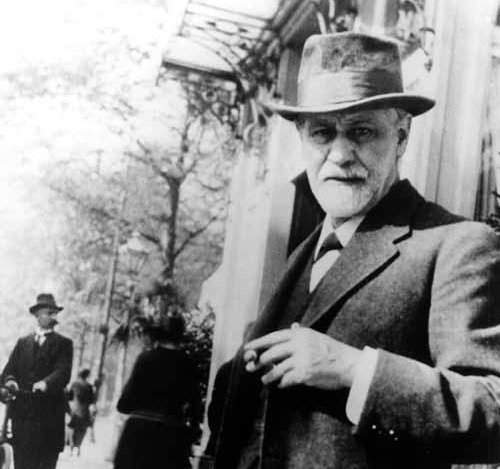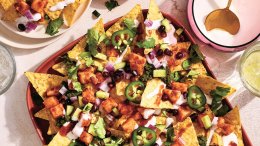It is always entertaining to consider what past authoritative figures would think of our world today and the legacy they left behind. Take, for example, Julia Child. She was a pioneer in making French food accessible and in the area of food television, which is now a multi-million dollar industry. I can only imagine what she would think of someone like Giada De Laurentiis, with her perfectly manicured nails and coiffed hair. I don’t think she displays enough “courage of her convictions” to impress the likes of Julia Child. For all we know, Giada never makes mistakes in the kitchen because if she does, they are edited out. She definitely does not splatter an entire potato pancake all over the stove in an attempt flip it, that’s for sure.
As a psychology student, if there is one person whose theories I find fascinating when considered in modern conditions, it is Sigmund Freud. Whether you apply them to food or otherwise, things can get pretty abstract, shall we say? How would Freud apply the basics of his psychoanalytic theory to our relationship with food?
Freud was all about his theory on the psychosexual stages of development. Each stage (oral, anal, phallic, latency and genital) was centered around an erogenous zone. Failure to resolve any of these five stages would inevitably lead to a fixation and thus neurosis for the rest of your life; a lovely prognosis, no doubt. Essentially, any problems or quirks that we have relate back to a fixation in one of these stages.
Take our fascination with food porn, for example. How does eating – or even simply looking at food – become such an intimate activity? Maybe we are all stuck in the first — the oral — stage, causing food to be the primary focus. We are all just gluttonous pigs, fixated on what to put in our mouths next (food-wise; otherwise, Freud would have taken this in a whole different direction, I’m sure). I am always thinking about food, whether it be making it or eating it. I am not so sure that the obsession stems from a conflict with breast feeding, which is how Freud saw it. This guy was crazy, I’m telling you!
Freud also believed that we have three components of our personality: the id, the ego and the superego. The id is present from birth and driven only by pleasure. It is the little voice in the back of your head that tells you, “I could really use some chocolate right now.” The next component, the ego, aims to satisfy the urges of the id in socially acceptable ways. In this case, it allows you to have a couple of squares of chocolate, but not the entire bar. As for the superego, it is the highest moral component of the whole shebang. Maybe that chocolate you are reaching for doesn’t actually belong to you. Maybe you were given strict instructions from someone else in the house to keep your greedy mitts off of it. Whether or not you actually listen, well that is up to the superego to decide.
Last, but not least, Freud came up with three levels of consciousness, present in every human mind: the unconscious, the preconscious and the conscious. Just like it sounds, the unconscious is everything that goes on in your mind that you are unaware of. For Freud, this almost always came back to sex (but also included other deviant thoughts like, say, hurting someone because they ate the last cookie in the cookie jar). Because it is not socially acceptable to express these urges, we have to project them in another form. Going back to the cookie example, I think we can all agree that punching someone in the face for eating the last cookie is generally frowned upon. You could, however, yell at them or eat all the cookies yourself next time (appealing to the conscious). This urge for cookies could have been hiding in your subconscious the whole time. Little did you know that it was there until you berated them for merely eating a cookie. It could also have been in your preconscious (memories), perhaps brought to full, conscious awareness by the smell of freshly baked cookies. Or maybe you knew all along that you wanted that damn cookie!
Who would have thought that Freud, potentially, could have so much to say about food?













